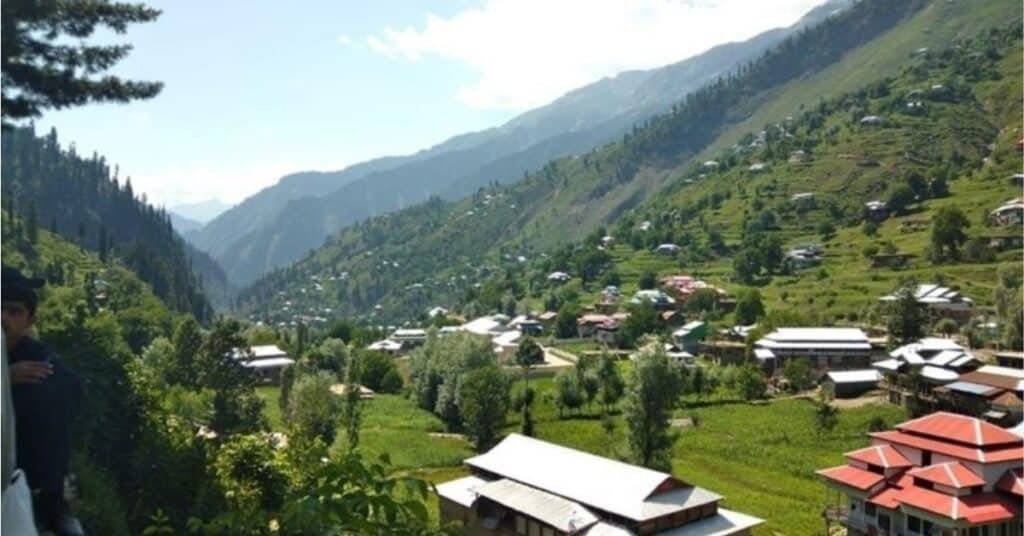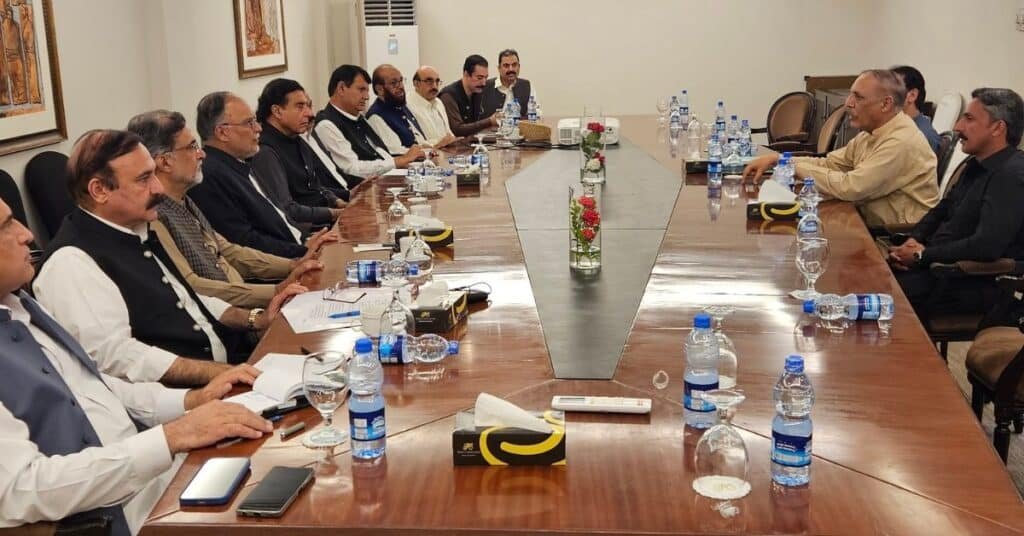MIRPUR (Kashmir English): Highlighting the challenges being faced in safeguarding environmental rights in war-torn regions like Kashmir, experts advocated for a healthy environment as essential for enjoying other liberties.
The panelists were speaking at an event held on the sidelines of the 58th session of the UNHCR in Geneva.
The event, hosted jointly by International Action for Peace & Sustainable Development (IASPD) and Kashmir Institute of International Relations (KIIR) was attended by environmental activists, international experts, representatives of human rights bodies hailing from different parts of the globe.
They included Ms. Mary Scully the human rights activist from USA, Raja Asim Zeb, Leon Sue, Talha Tufail Bhatti, Catherine Cantinstine, and Altaf Hussain Wani.
President IASPD and Executive Director KIIR Sardar Amjad Yousuf Khan moderated the event, said a message released to the media on Wednesday.
In his initial remarks, Yousuf Khan talked about the significance of the UNHCR’s landmark resolution, which acknowledged the right to a clean, healthy, and sustainable environment. “A healthy environment is essential for the realisation of other human rights”, Khan said.
Right to healthy environment
“The right to a healthy environment in conflict-hit areas is an essential aspect of international human rights and humanitarian law that is frequently neglected”, he lamented.
Citing the devastating impacts of armed conflicts on the environment, the experts said that armed conflicts not only lead to bloodshed and violence but they also exacerbate environmental damage by dismantling ecosystems, contaminating water supplies, and subjecting civilians to hazardous toxins.
He said the same infringe upon their essential rights to dignity, health, and livelihood.
In a clear reference to the ongoing conflict in the Indian illegally occupied Jammu and Kashmir, they said that the ongoing Kashmir conflict has significantly contributed to an environmental crisis in the region, primarily due to the neglect of environmental concerns amidst political tensions.
Citing massive troops concentration in the eco-sensitive region of Kashmir, the experts said that the troops deployment in the eco-fragile areas along the Line of Control (LoC) and use of heavy weapons had led to issues like rapid glacier melting, water scarcity, deforestation, and degradation of fragile ecosystems.
Kashmir, they said, was one of the areas vulnerable to climate change, and added: “The presence of large military forces in the restive region contributes to environmental pollution through waste disposal and fuel emissions”.
“Despite legal frameworks in vogue, including global humanitarian law and human rights treaties, enforcement remains weak and accountability mechanisms are limited”, they believed.
They said that global institutions played a crucial role in setting legal frameworks and standards in addressing environmental harm as a human rights violation.
The panelists were of the view that it was prime responsibility of governments to enact and enforce environmental laws that protected human rights within their territories, including access to air, clean water, and a healthy environment.
However, they stated, non-state actors like NGOs and corporations could equally contribute by monitoring violations, influencing policy making, and advocating for change through public pressure and legal mechanisms.




